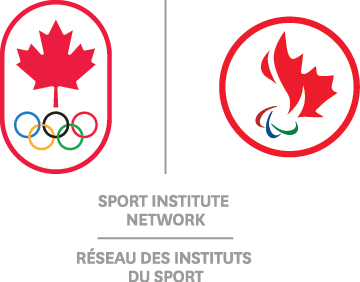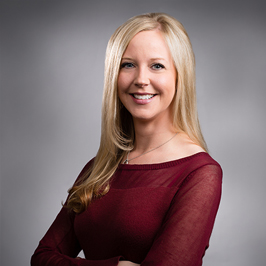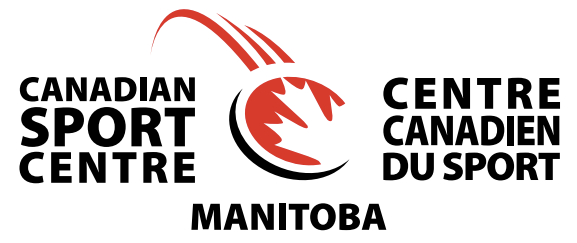Being Your Best Self
CSCM’s director of sport dietetics, Jorie Janzen, is no ordinary dietitian. In this Q&A, she shares some of what motivates her and what she loves about her job, and gives some advice for others interested in the discipline.
When family and friends ask what you do, how do you explain it?
I help people figure out how to be their best self – whatever that is for them. Nutrition is a big part of that. I help people understand that nutrition is about health, not weight.
What’s the most common question you get asked?
“Can I eat after 8 p.m.?” “Can I eat carbs? How much?”
The answer to these questions depends on your goals as an athlete. Plans are all tailor-made for individual athletes, which helps get the athletes to buy in and take interest.
What’s one thing you wish people would ask but they never seem to?
“How can nutrition best help me to live my life?”
I wish people went in wanting to know the real stuff – not just a quick fix to get them their desired body weight or image. Athlete or not, it’s not about “fixing” yourself, but about working with what you’ve got.
That’s why it’s important for dietitians to go beyond nutrition and play almost a counselling role – there’s a huge “life coach” aspect to my job. It’s important to support all clients as human beings, not just as objects.
What’s your favourite part of the job?
I’m not a doctor, but I still get to change lives: I provide the support and tools that allow for healthy change (some “aha!” moments) and help people be the best they can be.
What advice do you have for others who might be starting out in their own careers or considering dietetics?
If you make mistakes, it doesn’t matter. Make it a lesson learned. There’s no “one way” to get there. I’m a performance dietitian not because I’m an athlete, but through a great relationships that brought me here. Allow time to get there. Take your own path. It’s not going to happen overnight.
Push outside of your safety zone. Don’t change who you are, but work on certain areas. Sometimes you need to show people you can do things – there can be a disconnect with what people think about you. Market yourself as a person to get where you want to in your career. Recharge by being who you are.
As important as it is to find a job you love, don’t put the rest of your life on hold for a career. You can rebuild, but you can’t go back or get time back. There will always be another opportunity. Make sure not to lose – or lose sight of – who you are.
What’s the biggest challenge you face in a day?
Structure. Work environments can be distracting, and focus is a challenge. I’m lucky to have a full-time position in sports nutrition, but that’s not the case for most others in Manitoba. That means sports nutritionists need to have another full-time job, and end up practicing sports nutrition in the evenings and on weekends. A couple additional full-time colleagues in Manitoba would be amazing – colleagues to share ideas, challenge each other and share the workload.
What kind of education or training did you do?
I completed a bachelor of human ecology with a major in nutrition (which now is called a bachelor of science with a major in nutrition science through the department of agriculture) plus a 10-month internship with Health Sciences Centre – now the Manitoba Dietetic Partnership Program. I was recently part of the first Canadian group to receive the Certified Specialist in Sports Dietetics (CSSD) designation.
Do you have a favourite sport or demographic to work with?
No, I really love people. Whatever sport, there’s a challenge! I dislike the textbook mentality of sports nutrition; it can be a starting point, but it definitely isn’t the right mould for everyone. I always look to understand what makes each athlete work.
Does your job impact your parenting or family?
I let my daughter have treats everyday. What’s great about being a dietitian is that we like to normalize food. The goal is to nourish the body and keep it functioning. I have a healthy relationship with food – most days, and I try hard to help my daughter to as well. I have seen how the needs of a sport impacts an athlete and I believe having a healthy relationship with food is vital to high performance in all areas of life.
I always emphasize food and exercise as a way to stay healthy and energized – never for a weight or body image as an outcome to strive for. I make sure as a parent I relate food and physical activity as enjoyable. I want my daughter to be free to live; not bound by mental health struggles with an unhealthy relationship around eating and exercising.
As well, when an athlete needs me it doesn’t always happen during 9-5 hours. Work can disrupt family life quite a bit. If an athlete has a problem that can’t wait until morning, I’ll always take a late-night call. While I have learned that work-life balance is necessary, my athletes understand that immediate response or not, I will be there for them. That knowledge alone adds to an athlete’s quality of life.




